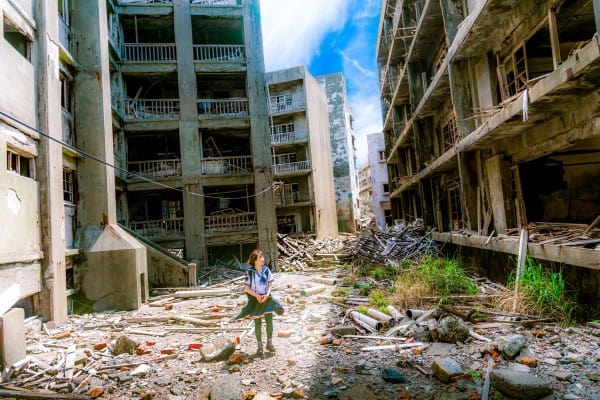Humanitarians provide aid to people affected by crises, conflicts, and disasters. For aid worker to be effective, it’s important they understand what makes a good humanitarian. To best serve crises affected communities, research shows aid workers need a number of qualities. So, what really makes a great humanitarian?
A great humanitarian combines dedication, adaptability, and problem-solving skills with an understanding of their context and a knowledge of global issues. Good stress management, teamwork and cultural awareness are key, as well as negotiation skills, good writing, knowledge of financial management and a willingness to learn.
Now we have an overview of competencies a good humanitarian needs, let’s break these down…
Dedication
A top quality that all humanitarians need is dedication. Humanitarians must be committed to their work and highly driven to help people in need. Crises and disaster zones are extremely challenging places to work and great humanitarians need to be dedicated enough to overcome many obstacles. A strong humanitarian worker uses their dedication to put their beneficiaries at the forefront of their work.
Adaptability
Great humanitarians are adaptable in their work. As responses to crises develop and situations change, humanitarians need to be able to adapt quickly. Altering aid operations to new contextual developments can mean better responses and more people receiving the assistance they need. Effective humanitarians are able to change how and where they work, retaining a focus on delivering essential aid to the people who need it.
Cultural Awareness
Humanitarians deliver aid in many different countries. To be a great humanitarian it is important that aid workers become aware of the cultural context in which they are working. Being culturally aware is important for humanitarians to build good relationships with colleagues, partners, and officials. It is also, arguably more important, for humanitarians to understand the culture of the people they are helping. This is vital for good humanitarian work.
Willingness to Learn
One thing that definitely makes a strong humanitarian is a willingness to learn. When aid workers are deployed into new contexts it is important, they learn the historical, geographical and political make-up of the country they are working in. This will inform their humanitarian response and improve services to people in need. There are many things that humanitarians need to learn quickly and so a willingness to take on new ideas and gain a deep understanding is crucial to being a good aid worker.
Negotiation Skills
Negotiations are crucial to successful humanitarian responses and good humanitarians know this. On a humanitarian mission, aid workers must often negotiate with local authorities, armed groups, other humanitarian actors and even within their own organisation. To be a great humanitarian requires that aid workers know how to negotiate, what can and cannot be comprised within negotiations and when to accept that negotiations have failed.
Planning
Another thing that makes a great humanitarian is good planning. Successful humanitarian responses are built on strong planning. Although situations change, good humanitarian workers know how to alter their plans. Pre-positioning aid, having procedures in cases of security incidents and preparing funding for new projects are just some of the area’s humanitarians need to plan. Great humanitarians know the importance of good planning, as well as how to communicate plans to the required people.
Stress Management
Working in humanitarian aid can be stressful. High pressure work, difficult living conditions, changeable contexts and tough negotiations all add to the stress humanitarians face. Effective humanitarians developing coping mechanisms to manage stress. Not allowing pressure to overcome thinking and remaining goal orientated and focused can be tough, but its key to being a great humanitarian.
Writing Skills
Strong writing skills are definitely part of being a good humanitarian. Aid workers are required to write project proposals, internal and external reports, project summaries, communication materials and SOPs. To be a great humanitarian it is important to be able to summarise complex events, contexts and procedures in clear and precise writing. High quality writing skills are crucial to being successful in the aid sector and a key aspect of being a great humanitarian.
Financial Management
As well as strong writing skills, humanitarians need to be great at financial management too. Aid projects can have budgets of millions of dollars. Humanitarians need to know a range of financial tools to effectively allocate, use and track their funding. Budget monitoring, cash management, forecasting, paying suppliers and project finance management are all key to being a great humanitarian.
Able to Live and Work in Tough Places
Humanitarians delivering aid need to be based on the front-line. Crises and disaster zones where aid is needed are not easy places to live. Good humanitarians understand that living in remote and sometimes difficult environments is part of the job. Living and working for extended periods of time in sometimes basic conditions can be tough, but many humanitarians know that it is key to be based close to the areas they are needed the most.
Teamwork
Great humanitarians work well in a team. Aid projects can have many staff with a wide range of skills, that need to come together to implement the response. All humanitarians need to ensure they’re team is cohesive, working together and aligned with the missions’ objectives. Great humanitarians also know how to bring the skills that are needed into their teams and how to build a strong team dynamic.
Prioritisation
Prioritisation is key to being an effective humanitarian. Aid work is hugely demanding, and humanitarians have a wide range of responsibilities. Knowing which parts of a humanitarian response need to be prioritised, and making the correct decisions on where staff, resources, finances and time should be allocated is fundamental to being a good humanitarian aid worker.
Empathy
Humanitarian aid should be built on empathy. Good humanitarians try to understand and share the feelings of other people, especially those they are trying to help. Compassion for people affected by crises and disasters is key to humanitarianism. Alongside empathy, good humanitarians also see beneficiaries as active participants in their assistance and create dialogues between aid workers and those they are serving.
Problem Solving Skills
Humanitarian workers face many challenges. Great humanitarians are able to navigate problems as they arise. Its important aid workers meet issues head-on and have the correct mindset to deal with complications within their responses. Not all issues can be resolved, but good humanitarians have a problem-solving mindset and prevent challenges from significantly disrupting their aid delivery.
Situational Awareness
Aid workers are deployed into a wide range of settings. Humanitarians often move between countries, locations and bases. Therefore, it is crucial humanitarians develop strong skills in analysing their contexts and surroundings. Situational awareness is key to being a good humanitarian. Being able to assess situations and understand how they can develop is an important part of security management and helps to keep aid workers safe.
Communication
Great humanitarians understand the importance of communication. Within a humanitarian response, communication takes many forms. It includes within the team, the wider mission, and the different offices of the organisation. Humanitarian missions also need to communicate with donors and produce material for public fundraising. Communications with the media are also key to a successful humanitarian mission.
Understanding of Global Issues
Humanitarians need to understand the context they are working in. However, great humanitarians also have knowledge of the wider global issues that have caused, and are affecting, the situation they are working in. Understanding historical events, global trends and contemporary international politics is key to being an effective humanitarian worker.





